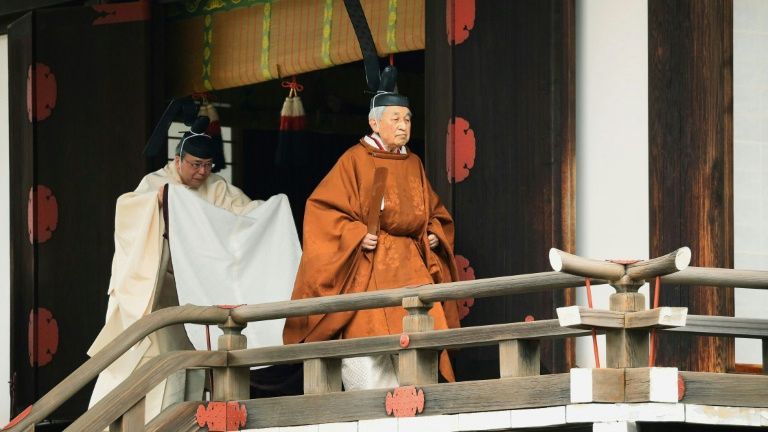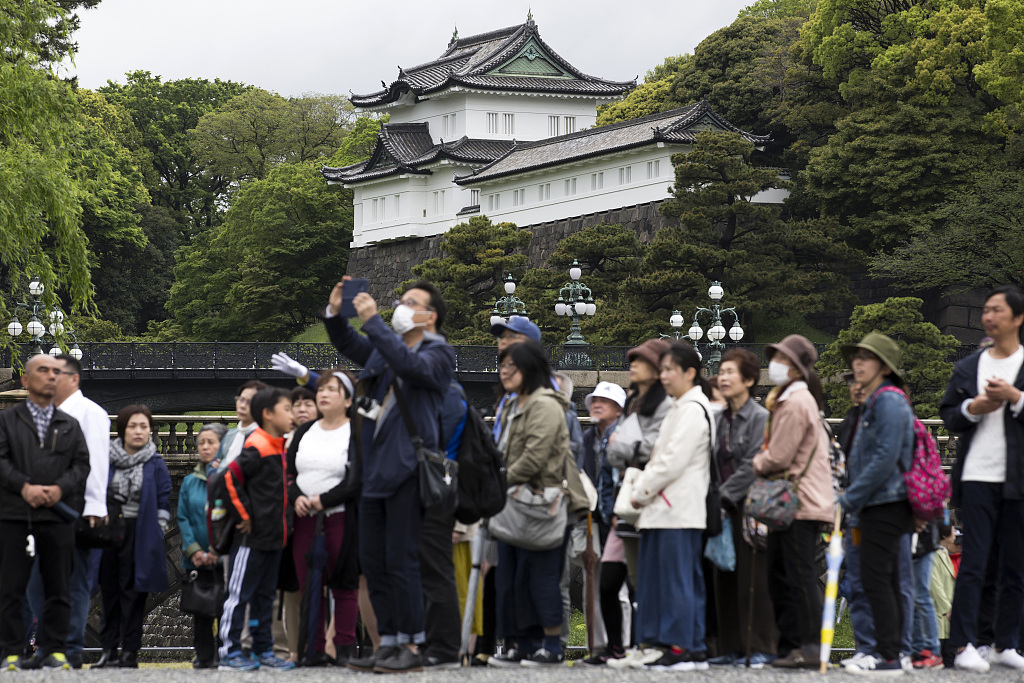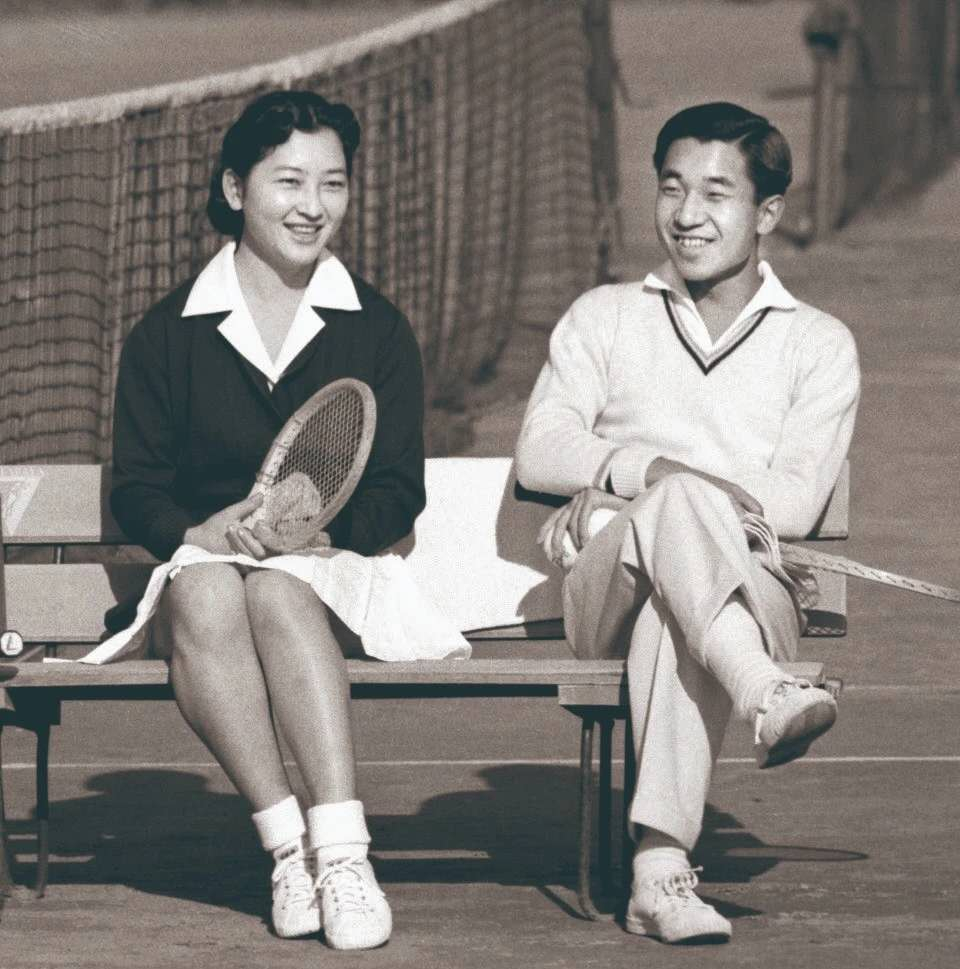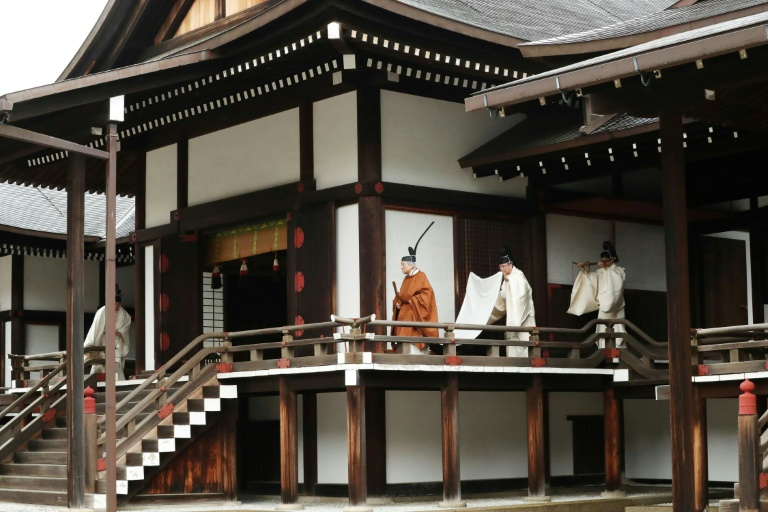
Asia Pacific
09:40, 30-Apr-2019
Japanese Emperor Akihito declares historic abdication
Updated
20:42, 30-Apr-2019
CGTN

Draped in ornate golden-brown robes and wearing a towering black hat, Japan's Emperor Akihito on Tuesday kicked off ceremonies for his abdication, the first in 200 years for the world's oldest monarchy.
Akihito is handing over the Chrysanthemum Throne to his eldest son, 59-year-old Crown Prince Naruhito, in a series of solemn rituals that also usher in the new imperial era named "Reiwa," meaning beautiful harmony, that will last throughout the new monarch's reign.
As crowds began to gather early Tuesday in the drizzle outside the sumptuous Imperial Palace in central Tokyo, Akihito performed a ritual to "report" his abdication to his ancestors and the Shinto gods at several "sanctuaries."
Akihito, 85, was the first Japanese monarch to take the throne under a post-war constitution that defines the emperor as a symbol of the people without political power.
His father, Hirohito, in whose name Japanese troops fought World War II, was considered a living deity until after Japan's defeat in 1945 when he renounced his divinity.

People visit the outer garden at the Imperial Palace on April 30, 2019, in Tokyo, Japan. /VCG Photo
People visit the outer garden at the Imperial Palace on April 30, 2019, in Tokyo, Japan. /VCG Photo
Akihito, together with Empress Michiko, his wife of 60 years and the first commoner to marry an imperial heir, carved out an active role as a symbol of reconciliation, peace and democracy.
"I think the emperor is loved by the people. His image is encouraging the people, such as after disasters, and being close to the people," Morio Miyamoto, 48, said as he waited near a train station in western Tokyo.
"I hope the next emperor will, like the Heisei emperor, be close to the people in the same way," he said.
Akihito, who has had treatment for prostate cancer and heart surgery, said in a televised address in 2016 that he feared his age would make it hard for him to carry out his duties fully.
Three sacred treasures

Akihito (R), together with Empress Michiko (L), his wife, 1958. /VCG Photo
Akihito (R), together with Empress Michiko (L), his wife, 1958. /VCG Photo
Akihito reported his abdication on Tuesday morning at sanctuaries inside the Imperial Palace grounds, one honoring the sun goddess Amaterasu Omikami, from whom mythology says the imperial line is descended, and two others honoring departed emperors and Shinto gods.
The abdication ceremony then took place in the afternoon with attendees including Prime Minister Shinzo Abe, Empress Michiko, Crown Prince Naruhito and Crown Princess Masako, as well as the heads of both houses of parliament and Supreme Court justices.
Imperial chamberlains carried state and privy seals into the room along with two of Japan's “Three Sacred Treasures” – a sword and a jewel – which together with a mirror are symbols of the throne. They are said to originate in ancient mythology.
After that, Abe announced the abdication and Akihito made his final remarks as emperor.

The ritual-bound abdication process began with Japan's Emperor Akihito (L), dressed in golden-brown robes, "reporting" his abdication to his ancestors and the gods at several "sanctuaries" at the palace. /AFP Photo
The ritual-bound abdication process began with Japan's Emperor Akihito (L), dressed in golden-brown robes, "reporting" his abdication to his ancestors and the gods at several "sanctuaries" at the palace. /AFP Photo
Naruhito, 59, will become emperor in separate ceremonies on Wednesday. Naruhito, who studied at Oxford, is likely to continue an active role and together with Harvard-educated Masako give the monarchy a cosmopolitan tinge.
Police have tightened security near the Imperial Palace, a 115-hectare site that is home to the emperor and empress in the heart of Tokyo. Media said several thousand police officers were being mobilized in the capital over the next few days.
Tuesday marks the last day of the Heisei imperial era, which began on January 8, 1989, after Akihito inherited the throne. The era has seen economic stagnation, natural disasters, and rapid technological change.
Akihito officially remains emperor until midnight, when the new Reiwa era begins.
(Top image: Japan's Emperor Akihito and Empress Michiko attend the awarding ceremony of the Midori Academic Prize Friday, April 26, 2019, in Tokyo. /Reuters Photo)
Source(s): Reuters

SITEMAP
Copyright © 2018 CGTN. Beijing ICP prepared NO.16065310-3
Copyright © 2018 CGTN. Beijing ICP prepared NO.16065310-3